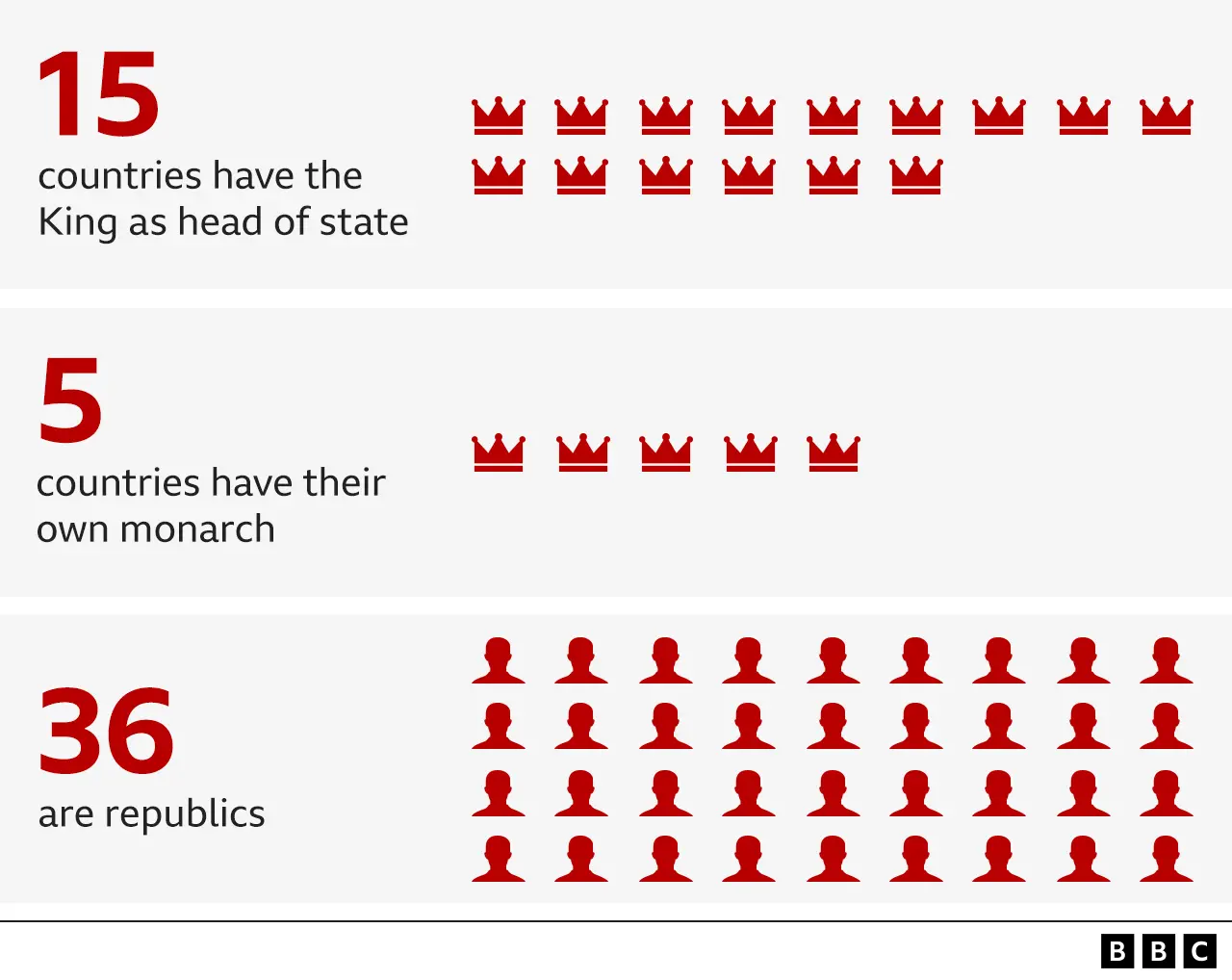Plenty:
Britannica sovereignty rests with the people, though who is included and excluded from the category of the people has varied across history. Because citizens do not govern the state themselves but through representatives, republics may be distinguished from direct democracy , though modern representative democracies are by and large republics. The term republic may also be applied to any form of government in which the head of state is not a hereditary monarch .
The UK is not a republic, nor are Canada, Australia, New Zealand and the other Commonwealth realms, who share the monarch as their head of state. In 1949, the Commonwealth recognised that republics could be full members, rather than only the monarchical states.
Commonwealth Declarations | Commonwealth .
London Declaration, 1949
India became independent in 1947. India wanted to become a republic which didn’t owe allegiance to the British king or queen, but it also wanted to stay a member of the Commonwealth. At a Commonwealth Prime Ministers meeting in London in 1949, the London Declaration said that republics and other countries could be part of the Commonwealth. The modern Commonwealth of Nations was born.
